It’s time for #6degrees. Start at the same place as other wonderful readers, add six books, and see where you end up. Inspired by the 6 Degrees of Separation Meme hosted every month at Books are my Favorite and Best.
September 2020’s book is Rodham by Curtis Sittenfeld. Blurb below:

“He proposed. She said no. And it changed her life forever.
In 1971, Hillary Rodham is a young woman full of promise: Life magazine has covered her Wellesley commencement speech, she’s attending Yale Law School, and she’s on the forefront of student activism and the women’s rights movement. And then she meets Bill Clinton. A handsome, charismatic southerner and fellow law student, Bill is already planning his political career. In each other, the two find a profound intellectual, emotional, and physical connection that neither has previously experienced.
In the real world, Hillary followed Bill back to Arkansas, and he proposed several times; although she said no more than once, as we all know, she eventually accepted and became Hillary Clinton.
But in Curtis Sittenfeld’s powerfully imagined tour-de-force of fiction, Hillary takes a different road. Feeling doubt about the prospective marriage, she endures their devastating breakup and leaves Arkansas. Over the next four decades, she blazes her own trail—one that unfolds in public as well as in private, that involves crossing paths again (and again) with Bill Clinton, that raises questions about the tradeoffs all of us must make in building a life.
Brilliantly weaving a riveting fictional tale into actual historical events, Curtis Sittenfeld delivers an uncannily astute and witty story for our times. In exploring the loneliness, moral ambivalence, and iron determination that characterize the quest for political power, as well as both the exhilaration and painful compromises demanded of female ambition in a world still run mostly by men, Rodham is a singular and unforgettable novel. “
On the conflict between the home and the personal ambitions (many of which may be ambitions for the public office), much has been written. The Headquarters and the Hearth, our public image and our private self, are in a tenuous balance.
Based on the blurb for Rodham, Hillary Rodham Clinton’s life seems to be in that same logjam. How much of our choices are based on compromises between the personal power and family harmony?
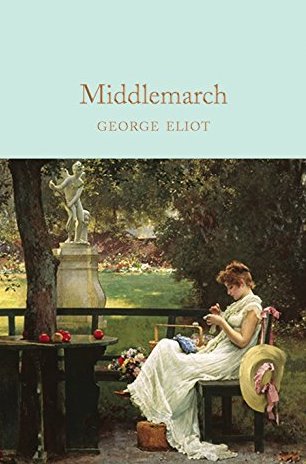
The struggle described in the blurb reminded me of George Eliot’s Middlemarch about Dorothea Brooke, who had wealth and talent and great aspirations, but those aspirations were repeatedly squelched by an insecure husband. Dorothea’s friend, Dr. Lydgate, faces a similar challenge when his wife’s extravagance brings his once rising medical career to a bankrupt halt. How terrible can be the consequences when one chooses an ill-suited partner.

Not everyone has Florentyna Rosnovski’s good fortune of having a supportive family in Jeffrey Archer’s The Prodigal Daughter (1982), the sequel to his earlier book, Kane and Abel (1979). The timings of the books are important; back in the 1970s-80s, many women had been elected as premiers. Florentyna is a fictional addition to the list. The daughter of a Polish immigrant and a sharp businesswoman, she ends up marrying Richard Kane, the son of her father’s archenemy. But when she decides to run for President, Richard is extremely supportive — and may I add, without vying for the same position. Florentyna chose well.
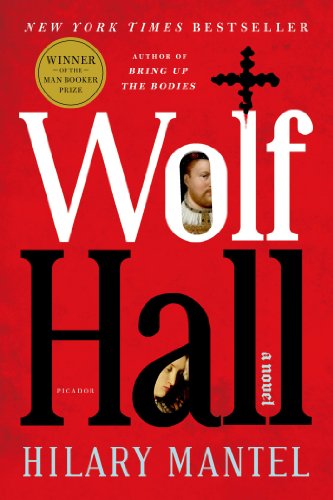
And Anne Boleyn (~1501-1536), second wife and queen of King Henry VIII didn’t, which we all know very well by now. Hilary Mantel begins a tale to recount Anne’s rise and fall in Wolf Hall (2009), and its sequels, Bring Up the Bodies (2012) and The Mirror and the Light (2020). For all of Anne’s strategems, she does get to the throne, and the game of power and politics has too many cooks, one such cook being Thomas Cromwell. Cromwell, although loyal to the King, has his own motivations in bringing down Anne and her family. Anne, who wanted to be Queen of England, discovers too late, how her choices have doomed her.
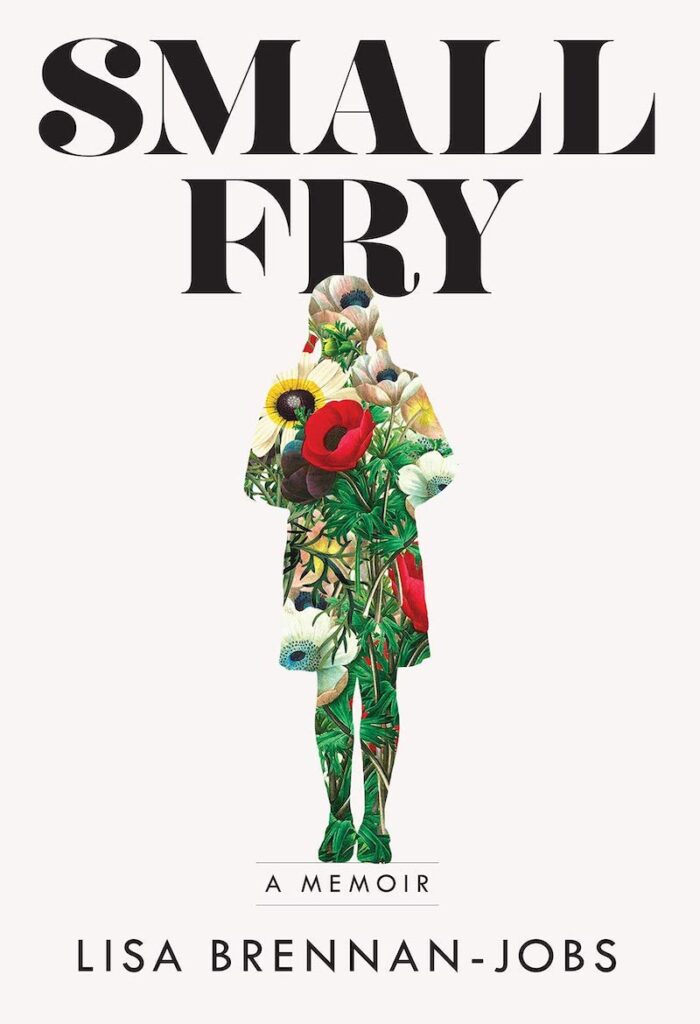
There are also the relationships that we don’t choose, but are born into. Understanding and freeing ourselves from those shackles can take us a lifetime. Small Fry by Lisa Brennan Jones is a hit to the gut, as she recounts how her father, the legendary Steve Jobs, could be capable of petty personal cruelty. I was disinclined to believe the review that came out in The New York Times, on August 23, 2018. Here was a woman who claimed to have been slighted, snubbed, and seriously abused by her father who was and is a role model for many of us. How do we bridge the gap between the face we show at work and the face we show to the people closest to us?
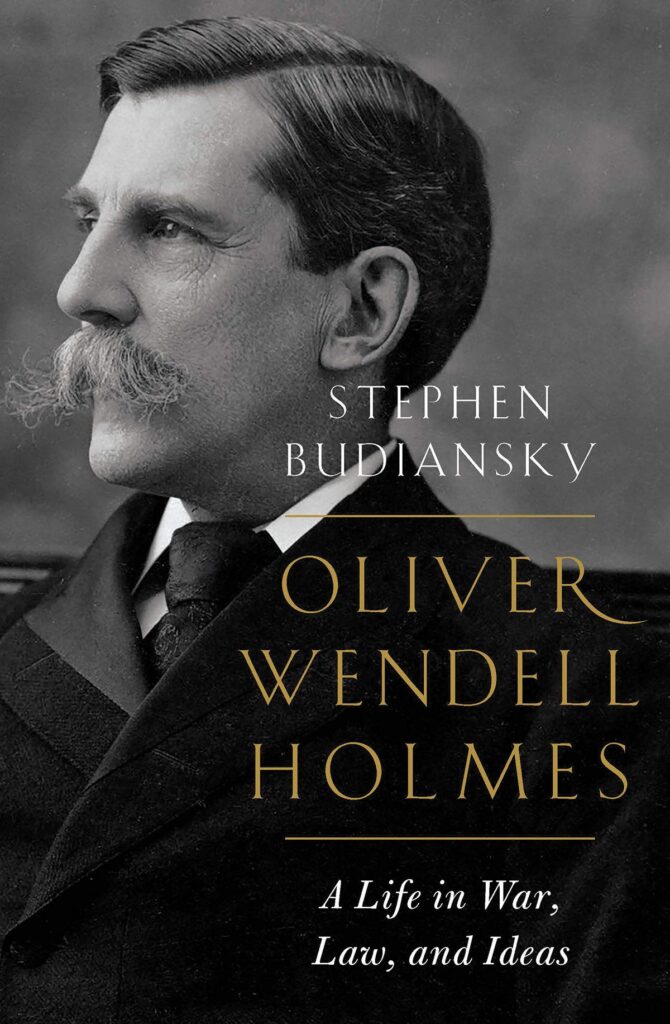
Inevitably, these masks that we wear will slip up and become the “inarticulate premise” of our lives: our private biases that unerringly direct our actions. Justice Oliver Holmes, Jr. (1841-1935, U.S. Supreme Court), spoke of the inarticulate premise of judges, who despite their best intentions, end up being influenced by their more subtle socio-cultural beliefs… and even what they had for dinner the night before. Stephen Budiansky’s biography, Oliver Wendell Holmes: A Life in War, Law, and Ideas tells us more about how Holmes became the Great Dissenter because his “realism” was so difficult to publicly acknowledge. But Holmes’ theory still holds; we are at the mercy of our subsconscious impulses, and we need to examine these.
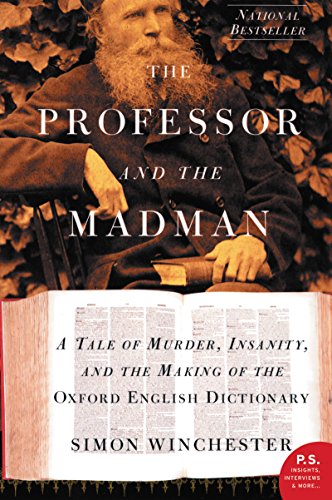
The Professor and the Madman by Simon Winchester is another curious take on the differences between public perception and the behind-the-scenes reality. Winchester writes about how the compilation of Oxford English Dictionary began as a crowdsourcing project in 1857 led by Professor James Murray. Murray had reached out to the public to share various interesting English words along with quotes backing the etymology. William Chester Minor, an American Civil War veteran, was possibly the biggest contributor (over 10,000 words). When Murray and his OED committee thought to honor Minor, they found he was locked-up as criminally and dangerously insane in Berkshire, England. The book traces the history of how Minor came to his sad fate. The next time we hold the OED in our hands, will we remember?
October’s book for #6 Degrees is the spooky The Turn of the Screw by Henry James. See you there!